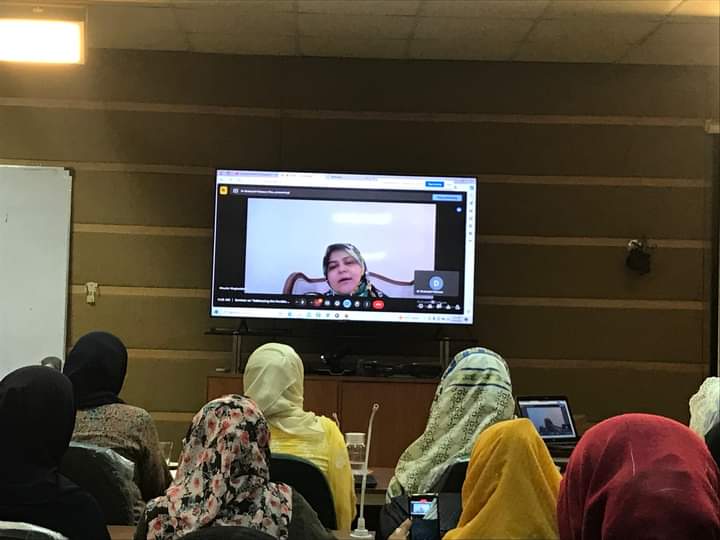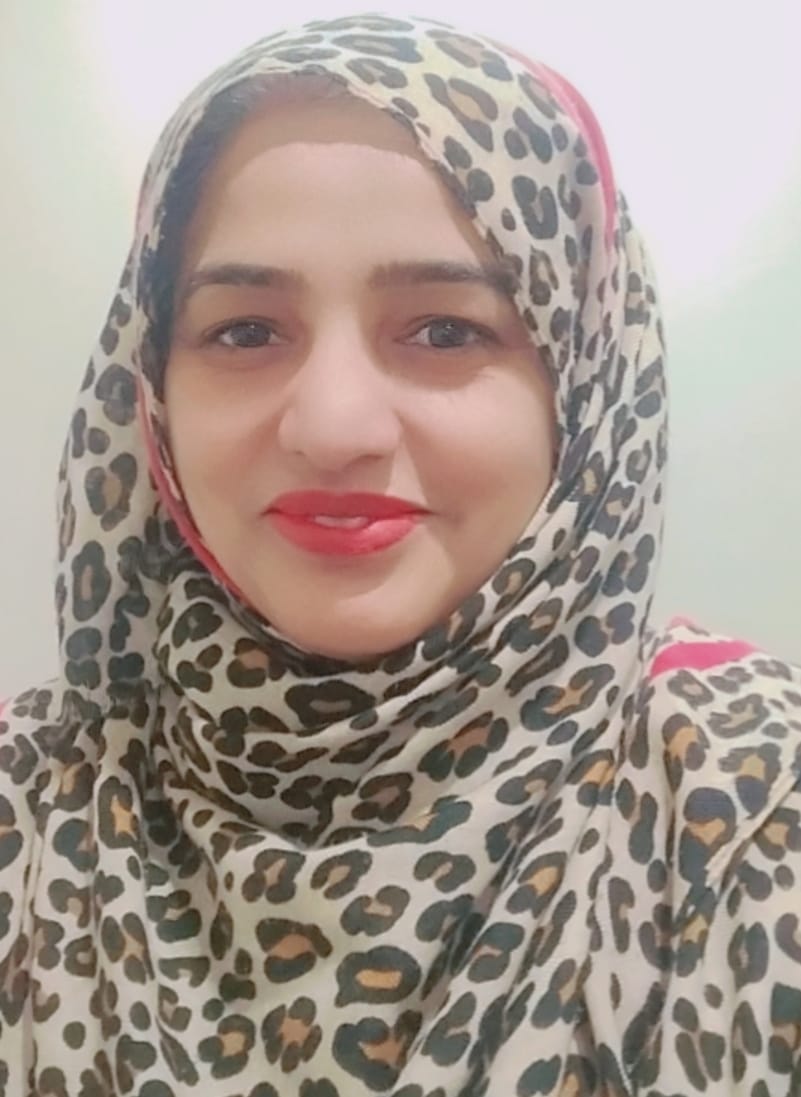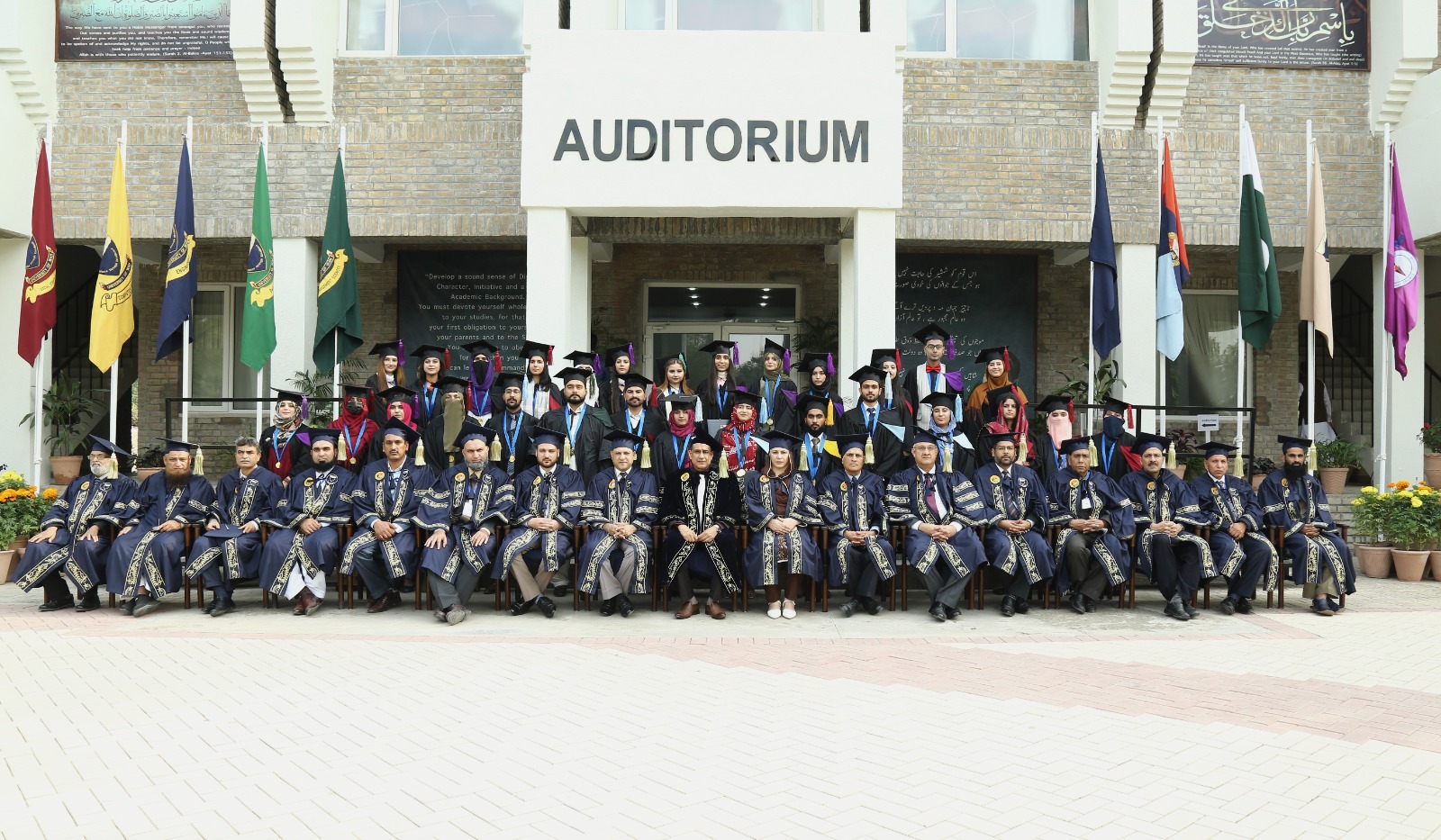International Hybrid Seminar on Empowering Women in Muslim Society Highlights Persistent Challenges and Opportunities
RAWALPINDI (NNP) Empowering women in contemporary Muslim society faces multifaceted hurdles rooted in cultural, social, and religious norms. Keeping in view the importance of the issue, the Department of Islamic Studies conducted an International Hybrid Seminar on the title, “Addressing the Hurdles to Empowering Women in Contemporary Muslim Society” on 16th May, 2024. In this seminar two speakers from Iran joined Online, and two speakers from Fatima Jinnah Women University joined On-Campus. Dr Shahzadi Pakeeza, Chairperson, Department of Islamic Studies moderated the session.
The speakers illustrated that despite the advancements in education and economic opportunities, deep-seated patriarchal structures persist, limiting women’s agency and participation in public spheres. In this context, Dr Sadia Ishtiaq, Assistant Professor, Department of Communication and Media Studies, FJWU talked about the Effects of Media and Cultural Influence on Islamic Family Structure. Speaker from Iran, Dr Niloufar Moghaddami Khomami, Assistant Professor, Women Research Center, Alzahra University, Tehran, Iran, who joined online, gave her speech on the Challenges faced by Women in Education. Another speaker, Dr Huma Ayub, Assistant Professor, Department of Business Administration, FJWU gave an in-depth description of the Challenges in Empowerment of Muslim Women and Young females as Entrepreneurs in Islamic Perspective. In the end, Dr Fateme Ebrahimi Varkiani, Assistant Professor of Family Studies Department of Al-Zahra University, Consultant of Women and Family Affairs of Islamic Culture and Communication Organization, who joined the session Online, emphasized on Family life and Role of Women in the Current Era.
Three short videos on successful Muslim Women and their achievements in Islamic Perspectives were also shown in the seminar. The event was attended by Cultural Counsellor, Mr Majid Mishki, Director Khaana i Farhang, Dr Mehdi Taheri, and students and faculty across the university on campus as well as online.



